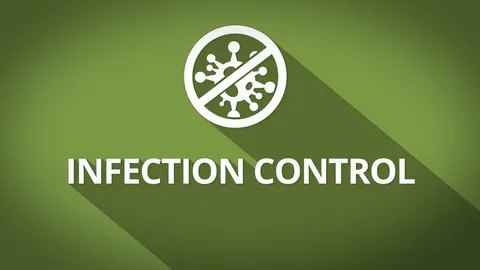Infection control is a critical component of healthcare systems worldwide. It involves implementing strategies to prevent and manage infections within healthcare settings, ensuring the safety of both patients and healthcare workers. Infection Control Courses play a significant role in educating professionals about these strategies, equipping them with the knowledge and skills necessary to mitigate risks. In this article, we will explore the importance of infection control training and the benefits of taking infection control courses.
What Are Infection Control Courses?
Infection Control Courses are educational programs designed to teach healthcare workers about infection prevention, management, and control strategies. These courses cover various aspects of infection control, including proper hygiene practices, sterilization techniques, use of personal protective equipment (PPE), and understanding infection transmission dynamics.
Healthcare professionals, such as nurses, doctors, and technicians, are encouraged to participate in these courses to ensure they follow the latest protocols and maintain a safe environment for their patients.
Why Are Infection Control Courses Essential?
The importance of infection control in healthcare settings cannot be overstated. Healthcare-associated infections (HAIs) are a significant concern, contributing to patient morbidity, mortality, and extended hospital stays. Infection control courses are essential for several reasons:
1. Preventing the Spread of Infections
Infection control courses provide healthcare professionals with the tools and knowledge to prevent infections from spreading. By learning best practices for sanitation, hygiene, and the proper handling of medical equipment, professionals can significantly reduce the risk of infection transmission.
2. Compliance with Health Standards
Hospitals and clinics are often required to comply with local and international infection control standards. Infection Control Courses help healthcare workers understand and meet these regulatory requirements, ensuring they provide care that aligns with established health guidelines.
3. Enhancing Patient and Worker Safety
Infection control protocols not only safeguard patients but also protect healthcare workers from potential exposure to harmful pathogens. Infection Control Courses empower staff to take proactive steps in safeguarding their health while maintaining a clean and sterile environment.
Key Topics Covered in Infection Control Courses
Infection Control Courses are comprehensive and cover a wide range of topics. Some of the key areas include:
1. Hand Hygiene and Proper Sanitation
Hand hygiene is one of the simplest yet most effective methods of preventing the spread of infections. Infection control training emphasizes the importance of regular hand washing and the proper use of hand sanitizers, especially in healthcare settings where the risk of contamination is high.
2. Sterilization and Disinfection Techniques
Sterilization is crucial in preventing infections, particularly when using medical equipment. Infection Control Courses teach healthcare workers how to properly sterilize and disinfect tools and surfaces to reduce the likelihood of pathogen transmission.
3. Use of Personal Protective Equipment (PPE)
Healthcare workers are often exposed to infectious agents. PPE, such as gloves, masks, and gowns, plays a crucial role in preventing the spread of infections. Infection control training ensures that professionals are aware of the appropriate use and disposal of PPE.
4. Understanding Infection Transmission
Infection control courses help healthcare workers understand how infections are transmitted, whether through direct contact, airborne particles, or contaminated surfaces. This knowledge helps staff take appropriate preventive measures based on the type of infection.
Benefits of Taking Infection Control Courses
Taking Infection Control Courses offers numerous advantages for healthcare professionals, including:
- Enhanced Knowledge: Healthcare workers gain a deeper understanding of infection prevention methods, ensuring they remain updated on the latest practices and guidelines.
- Improved Patient Outcomes: By applying the best infection control practices, healthcare workers can reduce the risk of healthcare-associated infections and improve patient care.
- Career Development: Infection control training is a valuable addition to a healthcare professional’s qualifications, enhancing their career prospects and credibility in the healthcare field.
Conclusion
Infection Control Courses are a vital part of healthcare education, equipping professionals with the necessary skills and knowledge to prevent and control infections. By investing in these courses, healthcare institutions and their staff contribute to a safer, healthier environment for both patients and workers. Whether you are a new healthcare worker or an experienced professional, these courses play a pivotal role in maintaining high standards of care and safety within healthcare facilities.

